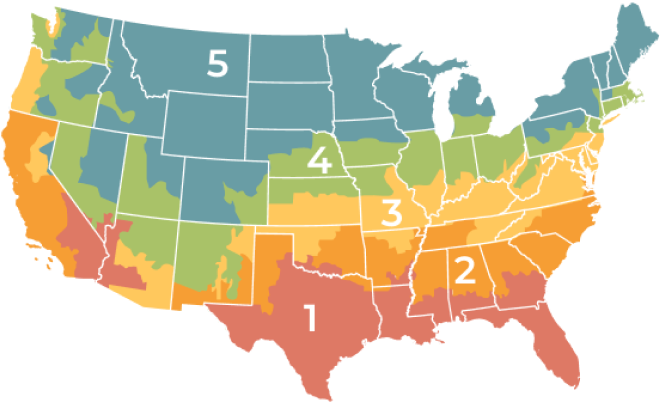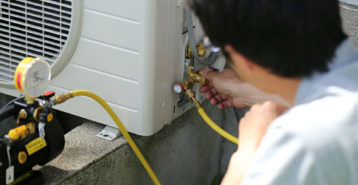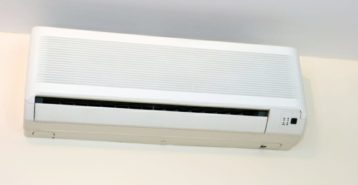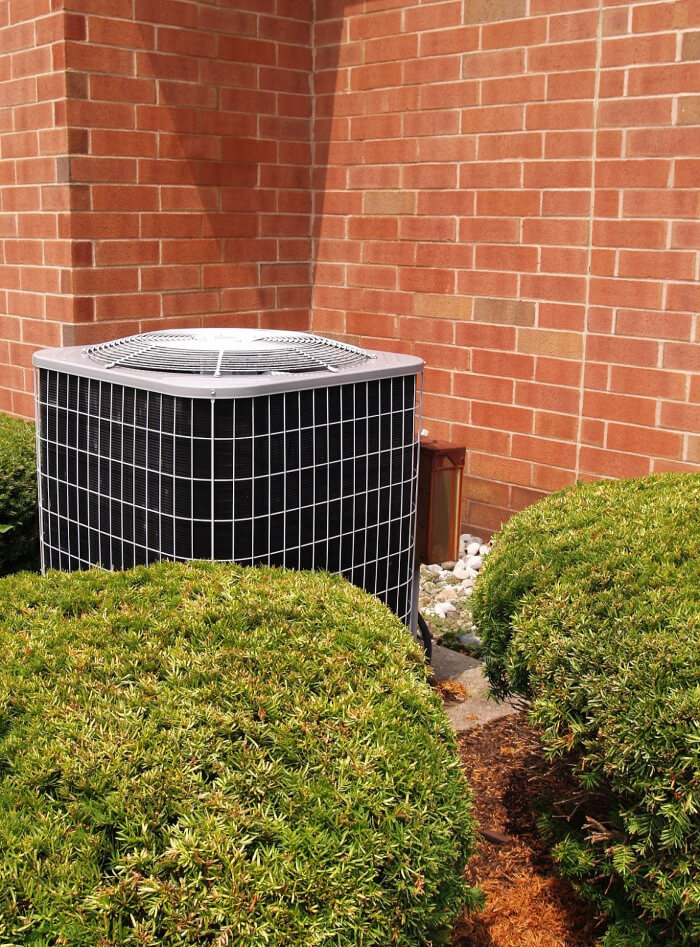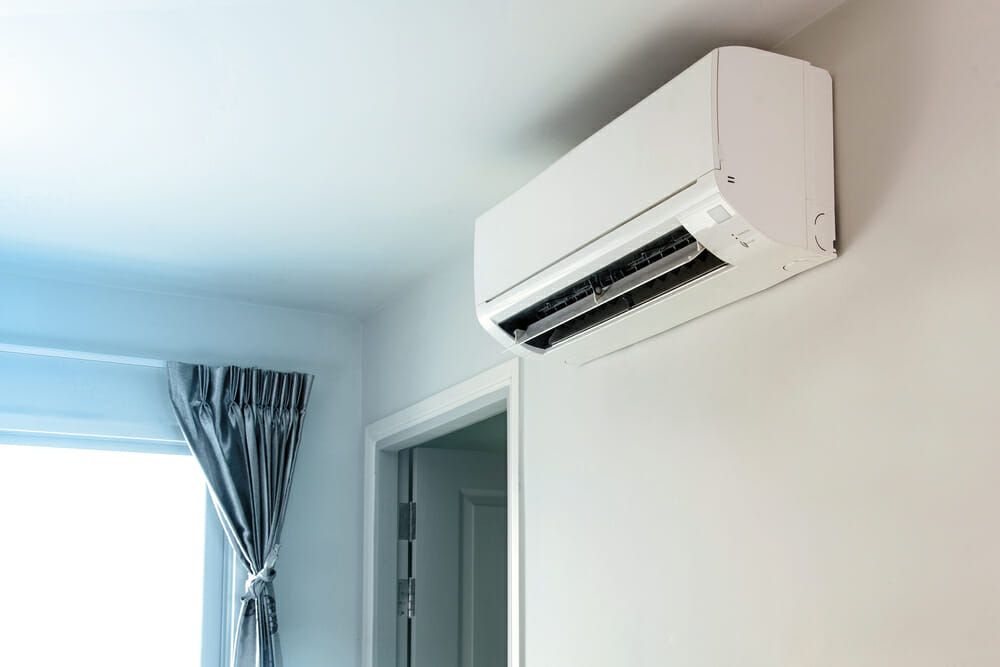What Size AC Unit Do I Need?
Choosing the right air conditioner size for your home is essential for staying comfortable and keeping energy bills in check. If your unit is too small, it may struggle to cool your space. On the other hand, if it’s too large, you could end up wasting money on energy and equipment. Understanding what size AC unit works for your home depends on a few key factors, like square footage, climate zone, and insulation levels. You’ll also want to factor in efficiency ratings to balance performance and cost. Use our AC size calculator to find the best fit for your home.
How to Use Our AC Size Calculator
You’re only a few clicks away from your recommended AC tonnage. To find out the right BTU (British thermal unit) rating for your home, start by selecting your climate zone on the map above, and follow the prompts to see your recommended air conditioner size. Once you have your result, consider reaching out to a local HVAC contractor to get installation estimates and explore your options.
Air Conditioner Unit Size Guidelines
While the right AC size depends on where you live and how well your home is insulated, here are some general guidelines to get you started:
- Standard Estimate: Most homes need around 40,000 BTUs (about 3.5 tons).
- Newer Homes or Updated Windows: You might be able to go as low as 35,000 BTUs (or 3 tons).
- Older Homes or Hot Climates: You could need up to 53,500 BTUs (around 4.5 tons).
For a customized recommendation on what size AC you need, use our air conditioner size calculator above. It’s quick and accurate!
What Size AC Unit You Need Depends on BTUs
BTU stands for British Thermal Unit. It’s how we measure an air conditioning unit’s cooling power. The more BTUs, the more space your system can cool. So, what size AC unit do you need? That depends on your home’s square footage. Larger homes need more BTUs, while smaller spaces can get by with less. It’s all about matching the power to your space for the best comfort and efficiency.
Here’s a quick guide based on common home sizes:
- 1,200 square feet: Around 18,000 to 24,000BTUs (1.5 to 2 tons)
- 1,500 to 1,800 square feet: Around 30,000 BTUs (2.5 tons)
- 2,000 to 3,500 square feet: Around 42,000 to 48,000 BTUs (3.5 to 4+ tons)
How BTUs and Tons Help You Know What Size AC Unit You Need
When shopping for a new hvac system, you’ll notice some air conditioners are listed in tons instead of BTUs. Don’t worry. It’s just a different way of measuring the same thing. One ton equals 12,000 BTUs of cooling power. So, a 3-ton unit puts out 36,000 BTUs, while a 5-ton system delivers 60,000 BTUs, which is typically the largest size for residential homes.
Most central air conditioner units range from 1.5 to 5 tons, increasing in half-ton increments. Knowing how BTUs convert to tons helps you figure out what size AC unit you need, especially if you’re comparing models or doing calculations yourself.
Why It’s Important to Get the Right AC Size
Getting the right air conditioner size makes all the difference in keeping your home cool, comfortable, and energy efficient. If your system is too small, it’ll run constantly without ever fully cooling your space. If it’s too big, it might cool your home too fast, causing it to cycle on and off more than it should. That leads to poor humidity control and uneven temperatures from room to room.
It also affects your energy bills. A properly sized AC unit uses just the right amount of power to get the job done. The wrong size? You could end up paying more every month without getting the comfort you want.
Check out the table below to get a quick idea of what size air conditioner might work best for your home.
| Home Size | Central AC Size - BTUs | Central AC Size - Tons |
|---|---|---|
| 1,200 | 18,000 - 24,000 | 1.5 - 2 tons |
| 1,200 - 1,500 | 24,000 | 2 tons |
| 1,500 - 1,800 | 30,000 | 2.5 tons |
| 1,800 - 2,500 | 30,000 - 36,000 | 2.5 - 3 tons |
| 2,500 - 3,500 | 42,000 - 48,000 | 3.5 - 4 tons |
How to Calculate AC Unit Size by Square Footage
A simple way to estimate what size AC unit you need is to start with 20 BTUs per square foot of living space. For example, a 1,000 square foot home would need about 20,000 BTUs, or roughly 1.5 to 2 tons of cooling power (since 12,000 BTUs equals one ton).
But square footage isn’t the only factor. You may need more or fewer BTUs depending on:
- Climate: Homes in very hot or humid areas may need more cooling power.
- Insulation: Older insulation can let cool air escape, requiring a higher BTU rating.
- Windows: Older or drafty windows can impact how well your AC keeps things cool.
When You Might Need More Than One AC Unit
Did our AC size calculator recommend more than one unit for your home? That’s not uncommon, especially for larger homes.
Residential AC units typically max out at 60,000 BTUs (or 5 tons). But depending on your home’s size, age, and location, you may need more cooling power. In that case, it makes sense to install multiple units.
Here’s how it usually works:
- Split by Floors: Many homeowners install one unit for the upstairs and another for the downstairs.
- Evenly Sized Floors: Choose two units of the same size.
- Uneven Floors: Go with a larger unit for the bigger floor and a smaller one for the smaller floor.
This setup helps keep every part of your home cool, and it can improve efficiency too.
What SEER Ratings Mean for Your AC Unit’s Efficiency
SEER stands for Seasonal Energy Efficiency Ratio, and it tells you how energy efficient an air conditioner is. The higher the SEER rating, the less energy your system uses to cool your home, which means lower utility bills.
Here’s what to know:
- 14 SEER is the minimum rating for air conditioner units in the U.S.
- 16 SEER or higher is considered high-efficiency and ideal if you want to cut energy costs.
- Higher SEER = higher upfront cost, but you’ll save over time with lower monthly bills.
Want to know what a new AC might cost? Use our AC cost calculator and get a personalized estimate.
Why Your Home’s Age, Windows, and Location Affect AC Size
If our AC size calculator gave you a higher BTU estimate than expected, don’t worry. It’s not a mistake. Certain features of your home can drive up your cooling needs. Here’s why.
- Older Homes Need More Cooling Power: Worn insulation, outdated weather-stripping, and air leaks in older homes make it harder to keep cool air in. That means your AC unit needs to work harder, requiring more BTUs.
- Lots of Older Windows = More Energy Loss: Windows are one of the biggest sources of heat gain. Homes with older or single-pane windows may need more cooling power to stay comfortable.
- Hot Climate? Your AC Has to Work Harder: If you live in a hot region, you might need 30 to 35 BTUs per square foot instead of the standard 20. Use the higher end of the range if your home is older or has lots of windows.
Not Sure Which AC Brand to Trust?
Before you talk to a contractor, check out our guide to the best AC brands. We break down performance, efficiency, and value so you can go into every quote knowing exactly what you want.
Do I Need an HVAC Contractor?
Once you’ve used our AC size calculator and have an idea of what you need, the next smart step is to compare your options.
When it’s time to buy, the only way to get an exact price is by talking to a licensed HVAC contractor. Based on our research, getting quotes from at least three to four contractors helps you lock in the best deal and feel confident in your decision.
During your consultation, be sure to mention it if your home has older windows, aging insulation, or any other energy-efficiency concerns. These details help the contractor recommend the right system size and setup for your home.
Don’t want to spend time making all the calls? We’ve got you covered. Just tap the button below and Modernize will connect you with up to four vetted HVAC contractors in your area. So you can compare quotes and choose with confidence.
